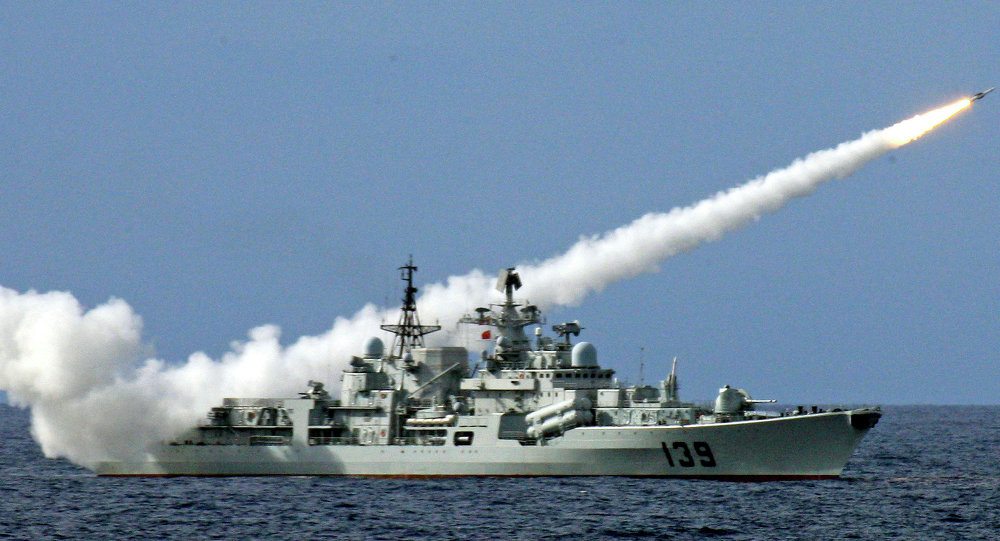According to the Chinese Defence Ministry, Beijing’s navy held a military drill to rehearse resupplying missiles in a combat situation, the first of its kind. Conducted in the Yellow Sea between the Chinese mainland and the Korean Peninsula, the exercises involved aircraft and sea vessels, as well as ground troops, and featured live-fire drills of torpedoes and missiles.
The projectiles were newly developed, and were fired at targets on land, at sea, and in the air. The Defence Ministry said on Thursday that the drill “for the first time ever organized a maritime missile combat resupply exercise.”
The successful resupply exercises come amid a strengthening Chinese military presence that has neighbors as well as the US on edge. Last May, a Chinese defense paper cited “provocative actions” by its neighbors as cause to expand its “open seas protection.”
That document referred to largely to rising tensions in the South China Sea, a hotly disputed stretch of sea through which nearly $5 trillion in trade passes annually. While China claims most of the territory, there are overlapping claims by Indonesia, the Philippines, Taiwan, Malaysia, Brunei, Singapore, and Vietnam.
To defend its territorial interests, the Chinese government has been conducting land reclamations projects in the Spratly archipelago. While Beijing says the artificial islands will be primarily used for humanitarian and rescue purposes, they will also host military installations.
On Thursday, new satellite photos revealed that Beijing has nearly completed a military-grade airstrip on Fiery Cross Reef.
The exercises could also be a sign of China’s growing resolve to assert itself in the face of Japanese aggression in the East China Sea. Last month, the Japanese parliament began considering legislation which would reverse the country’s longtime ban on sending soldiers abroad. The bill would permit Japan’s self-defense forces to defend its allies in the event of an attack.
According to Japanese media, Prime Minister Shinzo Abe reportedly said the legislation was aimed directly at Beijing. The Chinese Foreign Ministry was quick to respond.
“We have noticed the report. If it is confirmed true, we believe Japan should issue an explanation and clarification,” spokeswoman Hua Chunying said Monday, according to the China Daily.
She also urged Japan to “act prudently on military and security affairs to avoid making the same mistake [of the past].”
The United States has also beefed up its in presence in the region. With plans to refocus its naval strength on the Pacific, the Pentagon has conducted a number of military drills with regional allies, and has flown provocative patrols over the South China Sea.










